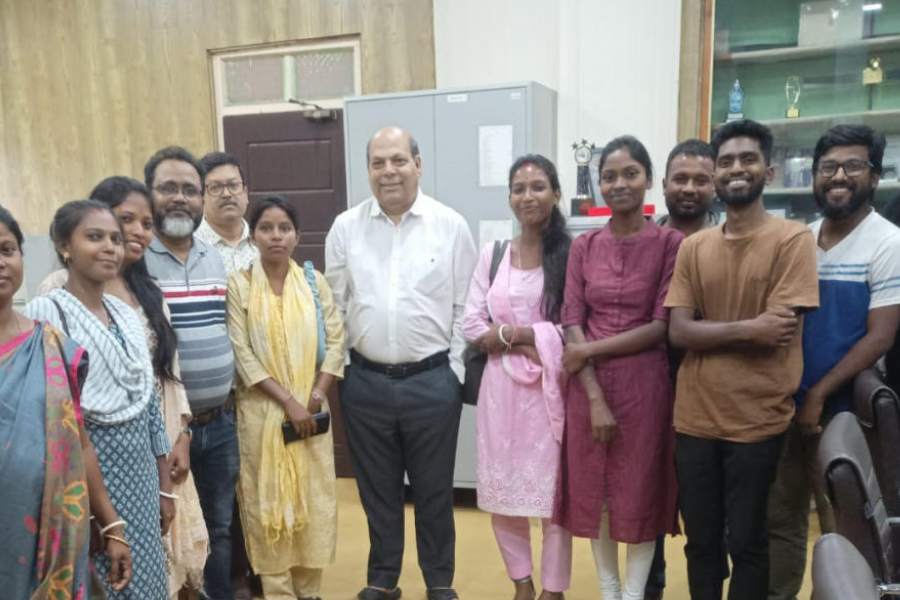The North Bengal University will provide training to youths hailing from tea gardens in the Dooars so that they can explore alternative sources of livelihood like farming and horticulture.
NBU vice-chancellor Omprakash Mishra said on Tuesday that they would be trained by experts at the Center of Floriculture and Agri-Business Management (Cofam) free of cost. Cofam is a part of the NBU, the oldest varsity in north Bengal.
“Initially, they will be trained for dragon fruit cultivation and mushroom farming. Thereafter, they will be trained to make different items out of mushrooms, such as mushroom chips and pickles,” he said.
On Tuesday, a group of youths from eight tea estates, along with representatives of six multipurpose cooperatives of Alipurduar and Jalpaiguri districts, visited the NBU campus and met Mishra.
They were from tea estates like Sonali, Chuapara, Mechpara, Bundapani, Hantapara, Mujnai, Madhu and Lankapara located in these two districts.
“They reside in these gardens and have the option of carrying out farming and horticulture. Both dragon fruit and mushroom, along with their derivatives, have steady demand across India. Once they start making these items, Cofam will help them in merchandising the products. Also, the multipurpose cooperatives will extend help to them so that they can make an earning while sitting at home,” said a source at the varsity.
In the first batch, around 20 youths will be imparted training for three days.
“There will be theory classes for the first two days while the last day is for field visits,” said Amrendra Kumar Pandey, a practical demonstrator of Cofam.
New lab launched
A new state-of-the-art research laboratory was inaugurated at the NBU on Tuesday. The Central Instrumentation Facility has been opened in the botany department.
Recently, the department had received a grant of Rs 1.5 crore from the Centre for the improvement of infrastructure in science and technology.
“These funds were used to build the facility that will largely help in conducting various types of research at the NBU,” said Monoranjan Chowdhury, the head of the botany department.










